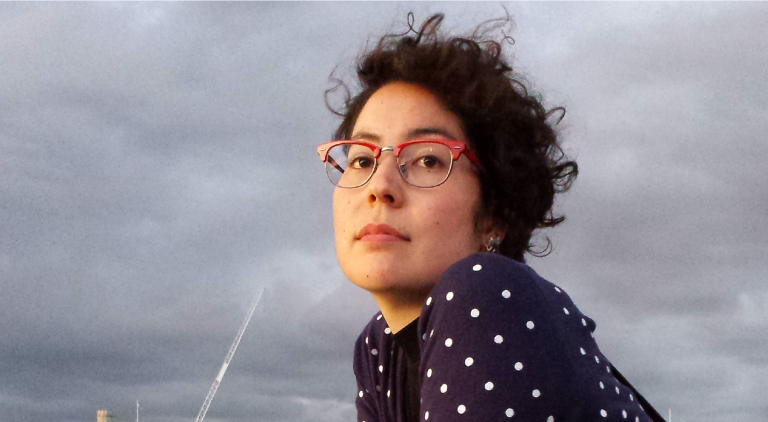Working Life: Back to school
1 October 2020
Dr Alissa Silva joins UCLQ from NPL, as a teaching fellow for the EPSRC Centre for Doctoral Training in Delivering Quantum Technologies.

Lasers are what got me onto my current path. I did my undergraduate degree in chemistry and then a master’s degree in analytical chemistry. During that masters I had one course, molecular spectroscopy, that was taught by this laser physicist who was immensely cool. So, I decided to do a summer project with her and that cemented my interest in photonics and optics.
Following that project, I did a PhD that taught me how to put together a laser system, which wasn’t something I was experimentally familiar with given my chemistry background. That propelled me into this general interest of experimental optics and my work at the University of Tokyo and the UK’s national measurement institute, NPL.
I think there is nothing more relaxing than setting up an optical experiment. At NPL, I had the opportunity to get lost in all those cables and fibres that go everywhere, overseeing the frequency combs that are needed in frequency metrology. While working there I was involved in the world-wide measurement community’s effort to establish a new SI definition of the second using optical atomic clocks.
Currently the second is defined by the periods of radiation corresponding to the microwave driven transition between the two hyperfine levels of the unperturbed ground state of the caesium atom. However, if we use optical transitions the definition will be 1000-fold more precise. At NPL, by GPS and optical fibre we were comparing and measuring optical clocks around the world to verify their results. To send information down optical fibres to Europe or via GPS to the rest of the world, you need frequency combs, which is where I came in. That is the experience I bring to the Centre for Doctoral Training to develop experiments for the MRes course.
It’s weird to start a new job in lockdown, it’s very warped. Instead of coming into a team, where there are buildings and offices and colleagues, you don’t have that visualisation, so a lot of the support you would get unknowingly from your social interactions is no longer there. I’m not going to recognise anyone when we return as I only know people on video - you recognise people by the way they walk, their mannerisms or their physical shape, so it will be interesting to see how that aligns with my assumptions after months of video calls! This experience has in some strange way been very useful because it is exactly what new students arriving in October will experience - the first term of the upcoming academic year will be delivered entirely remotely.
One of the challenges this presents is ‘cohort-isity’ of the students in the centre. That is getting new students to form and forge relationships, not just amongst themselves but with the wider community at UCLQ when they aren’t in a shared space together. Their induction week is all about putting the necessary components in place so the students will naturally form a bond, but I am also designing a series of projects that will run throughout term one. One of these activities is to assemble and programme a robotic arm and another project is to come up with an origami prototype that would offer the solution to a problem. In the case of the robot arm, only one student will have access to the arm and they will have to implement the code that other students develop. I hope the limitations imposed because of lockdown and social distancing will help students find new ways of communicating and give them common goals around which to coalesce.
Find out more about our Centre for Doctoral Training.
This article was featured in UCLQ’s 2019/20 annual report.
 Close
Close

